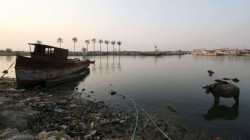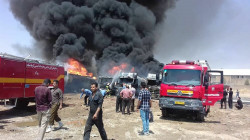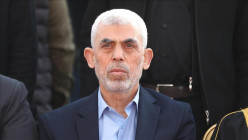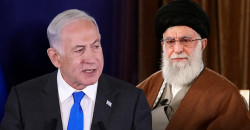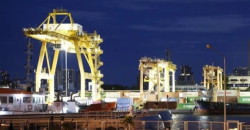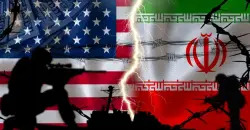Ebrahim Raisi: The implications of Khamenei's Disciple as Iran's new President-Elect
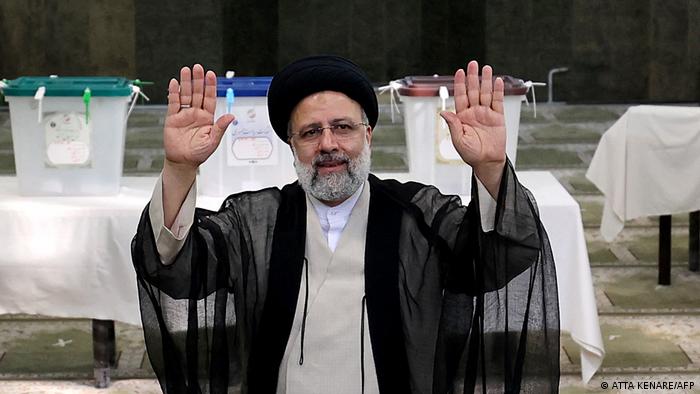
Shafaq News / Ebrahim Raisi, Iran's new president-elect, may have exceptional opportunities to lead major transformations in the Islamic republic. However, the 60-year-old may also well shape Iran's political landscape far beyond his presidency, armed with his close relationship with Iran's supreme leader Ali Khamenei, the outcome of negotiations with the U.S. and Western powers, and the possibility of relief from the U.S. sanctions.
Ebrahim Raisi enjoys the rank of "Hujjat Al-Islam", a moderate religious rank. However, it is enough to give conviction to his eligibility in the eyes of his supporters, to take over the post of the eighth president of the republic since the success of the Islamic Revolution in 1979.
Raisi was not well known in popular circles until he ran against President Hassan Rouhani in 2017 and finished second with about 38% of the vote. That result was the clearest indication that the man was moving strongly towards the post.
Ebrahim Raisi's victory at the polls was not much of a surprise as many observers have said that the latest election was tailor-made for the archconservative judiciary chief. He won the latest election by about 17 million votes, ahead of his second rival, Mohsen Rezaee, who won only about 3 million votes.
Ebrahim Raisi will enter the presidential residence on Pasteur Street in Tehran, enjoying what he considers a strong mandate for him to lead the hoped-for changes in the state more than 40 years after its revolution.
But because he has no long and impressive record in politics, many wonder whether Raisi has the knack for pragmatism needed to lead Iran politically and economically during his next four years in office. For it is an environment that needs a lot of statesmanship, prudence, caution, and courage in dealing with the bureaucracy of the revolution, its poles, and the actual forces holding Iran's balance of power.
But several things suggest that Raisi, who started his life with religious education before the Islamic Revolution, joined the schools of Qom, and went ahead to later step in several judicial, administrative positions after the revolution, may tend to change the country's direction a little bit from what the outgoing President Hassan Rouhani, who Ebrahim Raisi criticized in the past for what he considered his "exaggerated bet on rapprochement with the West". This trend may be reinforced by the fact that the U.S. imposed sanctions on him when he assumed the judiciary's presidency, accusing him, as Amnesty International does, of abusing and suppressing opponents, and even more, executing dissidents of the People's Mojahedin Organization of Iran.
Therefore, Raisi may be more cautious in dealing with the West in general, especially with the United States. Nevertheless, the final word regarding the major crucial issues is in the hands of the Supreme Leader, Ali Khamenei.
But the possibility of a major change in the country's direction is strong, especially since Vienna negotiations on Iran's nuclear program have so far made significant progress, according to Iranian and U.S. officials. Consequently, his reign is likely to see a new Western opening to Iran, the release of Iran's assets abroad, and its return to the global economic cycle by lifting sanctions on its oil, banks, and commercial sectors.
Ibrahim Raisi is expected to reap the benefits of Iran's return to the global economic scene, which could help him fulfill his pledges to Iranian voters, including fighting poverty and securing millions of homes for low-income people. Moreover, if sanctions are lifted, the average Iranian citizen is supposed to feel better after years of external pressure and sanctions that have strained the lives of millions of people.
When Raisi does enter office, he will be overseeing a country in a dismal economic state. However, the essential file in the new president's hands, which might be what allowed him to climb strongly to the top of Iran's political scene, is corruption, since he worked for many years under the direct guidance of Khamenei to collide with it.
As head of the judiciary, Ebrahim Raisi portrayed himself as an anti-corruption politician and a problem solver; he led a campaign during which he succeeded in pursuing top figures in the regime from reformist and conservative currents alike such as President Rouhani's brother, President Rouhani's office's director, Iranian Vice President Eshaq Jahangiri, and other senior officials working in various fields.
Ebrahim Raisi surrounded himself with a halo of integrity, especially during his years in charge of the Imam Reza Holy Shrine in Mashhad. It is known that the Shrine generates huge money for the treasury and invests billions of dollars in giant projects linked to tourism, real estate, industry, and oil.
But Amnesty International condemned Raisi's election immediately after he was announced as president of the Islamic Republic of Iran, saying that he should be subjected to an investigation into "crimes against humanity" and "violent repression" of human rights, "The fact that Ebrahim Raisi became president without being investigated for crimes against humanity, murders, enforced disappearances, and torture is a grim reminder that impunity supreme in Iran."
The London-based Amnesty International accused Ebrahim Raisi of being a member of the "Death Commission", which carried out enforced disappearances and secret extrajudicial executions against thousands of detained political dissidents while serving as deputy prosecutor of the Revolutionary Court in Tehran in 1988.
Many believe that Raisi is a disciple of Khamenei and that the leader himself appointed him to take over the administration of Imam Reza Holy Shrine, as well as in the position of head of the judiciary and tasked him with confronting corruption. Many also believe that if it were not for the leader's support, Raisi would not have run in the 2017 elections with the encouragement of the conservatives, and then in the current elections.
Many argue that Khamenei may be in the process of preparing Ebrahim Raisi to succeed him in the position of the supreme leader, although Khamenei himself was president of Iran in the 1980s before succeeding Khomeini after his death. Raisi has been a member of the Leadership Experts Council since 2007, Iran's highest authority in charge of selecting the supreme leader. Therefore, it is not surprising that Khamenei declared that the elections constitute, "A victory for the Iranian people in thwarting the malicious plots and media war waged by the enemy."
In 1982, Ebrahim Raisi served as attorney general of the city of Karaj. In 1986, he was appointed attorney general of the capital Tehran. He also served as assistant head of the judiciary and then as Iran's attorney general between 2015 and 2017. It was remarkable that his appointment to run the Imam Reza Holy Shrine was in 2016, during his tenure as attorney general, until he was appointed to head the judiciary, commissioned by Khamenei to lead a judicial change that would contribute to a new phase of Iran's revolution.
Therefore, many observers consider Ebrahim Raisi to be a true son of the regime, qualified, as long as he is specially sponsored by Khamenei, and has exceptional circumstances in Iran's foreign relations, to lead a new phase full of transformations and changes at the Iranian domestic level, and externally.
Raisi will have major challenges to deal with, from reforming the economic situation to arranging possible new relations with the West, following up on the Iraqi-sponsored Saudi openness file, and overseeing the multifaceted relation with Iraq, which he visited a few weeks before the elections.
Ebrahim Raisi was born on December 14, 1960, in Mashhad. His father was also a cleric but died while Raisi was only five years old. His wife, Jamila Alam Al-Huda, holds a Doctorate and is a professor of educational sciences at the Shahid Beheshti University. They have two daughters and two grandchildren.
